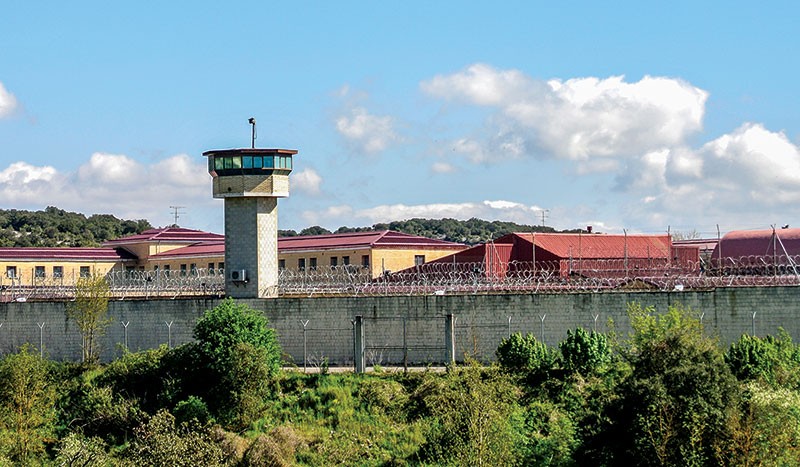For most people, the idea of abolishing prisons is right up there with colonizing Mars—a far-out concept torn straight from a science-fiction novel. But for writer and former labor union organizer Steve Martinot, the abolishment of prisons is the social justice issue of the 21st century.
“The first step towards creating a humane, egalitarian society would be eliminating the prison system and the prison ethic,” explains Martinot by phone from his home in Berkeley.
Now 74 years old, the retired UC Berkeley and San Francisco State adjunct lecturer first became involved with the prison abolition movement after attending a Critical Resistance conference in the late ’90s. Founded by former political prisoner and UC Santa Cruz professor Angela Davis, Critical Resistance takes as its mission dismantling the prison-industrial complex.
Like Thomas Paine, whose Common Sense inspired the American Revolution, Martinot turned to the pamphlet as the form through which to disseminate his argument about the prison system. He’ll be speaking on the ideas contained in “The Need to Abolish the Prison System: An Ethical Indictment” on March 9 at the Glaser Center, sponsored by Racial Justice Allies and the Peace & Justice Center of Sonoma County.
The pamphlet came about as Martinot heard people in the movement express dissatisfaction that there wasn’t a philosophical argument that made the “abolition of prison intelligible on an ethical basis.”
“I’d been doing a lot of work on the structures of racialization in the United States, so I took the project on myself to see if I could provide an ethical and political argument on a philosophical basis for the abolition of prisons,” he explains.
Considering that the U.S. Supreme Court described conditions in overcrowded California prisons as bordering on “cruel and unusual punishment,” Martinot may be on to something. In the 2011 ruling that directed California to address its prison overflow, Justice Anthony Kennedy described the situation thus: “A prison that deprives prisoners of basic sustenance, including adequate medical care, is incompatible with the concept of human dignity and has no place in civilized society.”
California was required to reduce its prisoner population from 143,000 to 110,000. The verdict is still out on whether prison realignment, which sent lower-level offenders to local and county jails, where they often benefit from early release, has been successful in alleviating the strain on a prison system that was housing almost double its capacity.
But for activists like Martinot, simply reorganizing the prison system, or reforming it through measures such as Proposition 36, the 2012 legislation that exempts nonviolent offenders in California from “three strikes” mandatory life sentences, is only a band-aid on an enormous bleeding wound.
His ideas take as foundation books like Michelle Alexander’s eye-opening book published in 2012, The New Jim Crow: Mass Incarceration in the Age of Colorblindness, which argues that the millions of African Americans locked up in prison represents the rebirth of a caste-like system, one that relegates these men and women to permanent second-class status. “She’s really doing the exposure literature of what the ‘judicial machine’ is all about,” says Martinot.
He mentions restorative justice—a movement that brings together the victim and the offender for dialogue, reparation and community dialogue—as one alternative to locking people up and throwing away the key. Another solution would be the immediate release of anyone currently in prison for what he calls a “victimless” crime. (According to Martinot, 70 percent of those currently incarcerated are in for victimless crimes like prostitution, drug possession and drug use.)
“If you define crime as an act that someone commits that makes someone else suffer, then all of these people in prison for victimless crimes are, they themselves, the victim,” he says. “So even before you can ask how we can abolish the prison system, everybody who’s been involved in a victimless crime should be released today.”
When Martinot speaks before a room of people, the reaction to his radical ideas about prison tends to be a collective silence, he says.
“A nonresponse on a group level—from my teaching background—means I’ve hit on something very profound. That silence means that whatever response my argument is going to get, I’m not going to be there to see it, but it’s going to be there and it’s going to be real.”













